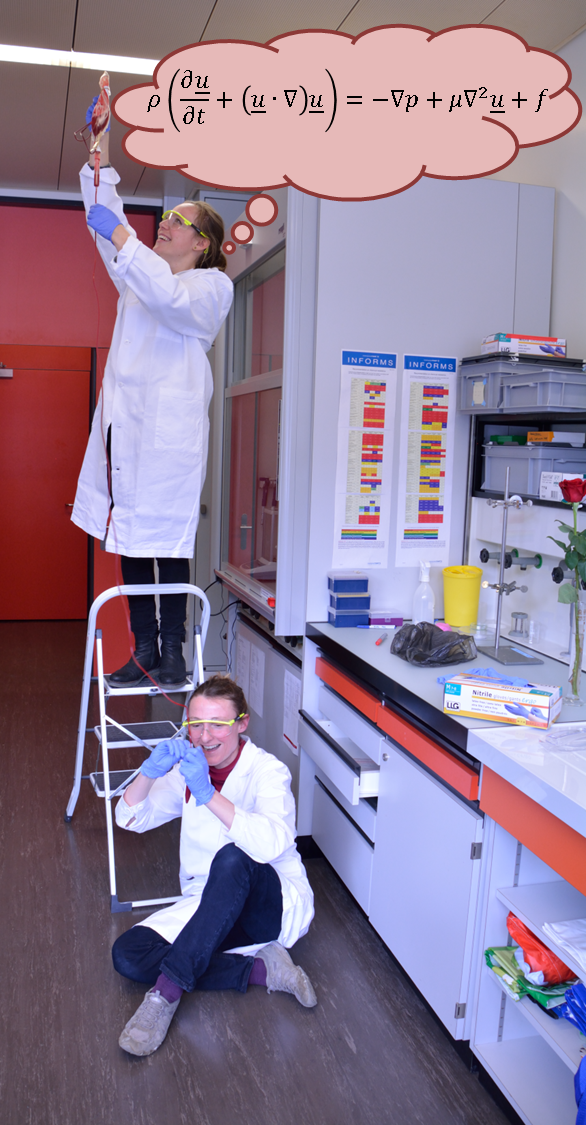Blog
Failure is not final
Have you ever felt like a bull in a china shop? Well, if you haven’t and are a top-notch engineer, here is an efficient way to make it happen: take your first steps into experimental biology; success guaranteed!
In my project, I have the pleasure of doing interdisciplinary work between engineering, medicine and biology. Besides being very interesting, inspiring and motivating, this also brings along some challenges, not the least of which is to conduct experiments on live cells or, to be more precise, on human red blood cells.
If you are an experienced biologist, all of what follows will most likely sound like a first year bachelor student reinventing the wheel. If, on the other hand, you are an engineering student, whose lab experience is limited to remembering the high school chemistry teacher pointing out that you REALLY should wear safety glasses at all times, you might relate to my amazing discoveries.
- Experimental biology is a battle with materials . You need countless tubes, cuvettes, pipette tips (and appropriate holders to place them in – very handy, believe me). It is not surprising that lab plasticware is only sold in packages of 100-1000, which also taught me another important trick: Never go to the material shop without a basket – 2 hands are not that many, actually.
- Blood scares people. If you need to transport it from one room to the other, put a lab coat on! You will look serious enough for the task and people will no longer worry about what you are actually carrying.
- Speak to your machines, treat them with an extra portion of love, and become good friends with the lab technician. The odds are that, sooner rather than later, one of the instruments will start displaying a mystical error message or making funny noises, which you will not be able to simply ignore.
- Do not put your nose close to the autoclave lid when you open it. Sounds obvious, but natural curiosity got me there. Really, do not do that: hot steam, especially out of a blood-filled autoclave, does not smell like roses.
- Unless you wish to recreate a horror scene straight out of The Shining, do not autoclave blood (or other liquids) in the “waste” program, even if people tell you that this should not be a problem. Blood everywhere, even if autoclaved, is disgusting. Even worse is cleaning the autoclave afterwards.
- Do not conduct experiments if you are in deep hypoglycemia. There seems to be an inverse proportionality between blood sugar level and mistakes.
- Don’t get demotivated about other (experienced) lab members passing by your bench saying “Oh, I see you are doing experiments now! Good luck!”. Luck would be nice to have, wouldn’t it?
However, do not give up hope just yet! The learning curve is actually quite flat. A pinch of humility, some sense of humor, the ability to ask and receive advice, three grains of motivation, and 5 ounces of perseverance will get you there.
So, if you too are planning to move from computer simulations to experimental biology, let the experienced me wish you … Good luck!!


Comments
There are no comments